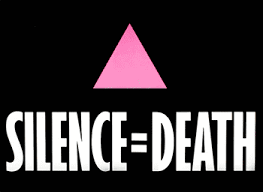By Bernard E. Harcourt
“Every [person] of humane convictions must decide on the protest that best suits [their] convictions, but we must all protest.”
— Martin Luther King, Jr., at Riverside Church in New York
With these words, Martin Luther King rose up, broke silence, and spoke out against this country’s war in Vietnam. King passionately decried the senseless bombing and civilian casualties, the napalm and the herding of the population into what he called “concentration camps.” King denounced “The Western arrogance of feeling that it has everything to teach others and nothing to learn from them.” And King called for “a radical revolution of values” to bring an end to warfare and fundamental change to our own society. “These are revolutionary times,” King declared from the pulpit of Riverside Church in New York City on April 4, 1967.
In his speech, which he titled “Breaking Silence,” King challenged injustices both at home and abroad, always emphasizing their interconnectedness. King protested the brutal war, with its inhuman disregard for women and children sacrificed to American interests, but also the related forms of iniquity and injustice at home. He emphasized the paradox of our sacrificing young African-American men in battle for ideals that they could never realize at home—in the name of liberties, he emphasized, “which they had not found in southwest Georgia and East Harlem.” And King defended himself against those who attacked him as unpatriotic for breaking silence against the war in Vietnam—arguing forcefully that they “have not really known me, my commitment or my calling. Indeed, their questions suggest that they do not know the world in which they live.”
“A time comes when silence is betrayal,” King declared.
Today, one cannot reread this phrase without thinking of the courage of later activists, such as the ACT UP activists in 1987 who brought the AIDS crisis to our attention through the Silence = Death Project, declaring in their manifesto that “silence about the oppression and annihilation of gay people, then and now, must be broken as a matter of our survival.”
King’s intervention against the Vietnam War was a radical act, especially at the time and given the political stakes for the civil rights movement. In his speech, King boldly sided with the revolutions around the world and called in no uncertain terms for “a radical revolution of values,” one in which the country as a whole would transform “from a thing-oriented society to a person-oriented society.”
King wrote and engaged in forms of direct action and civil disobedience that would inspire others around the world—and that were themselves inspired by the brave actions of some, such as Rosa Parks and Mahatma Gandhi, and by the bold writings of others, such as David Henry Thoreau. King inspired deep reflection on the place of civil disobedience in democracies and the differences and nuances between collective action and conscientious objection, especially by Hannah Arendt and others such as John Rawls and Stanley Cavell.
The title of his speech at Riverside Church, “Breaking Silence,” is the perfect place to begin to explore how the very act of speaking up constitutes another modality of revolt, how it relates to the other types of direct action that King himself engaged in, and how it intersects the other modes of resistance that we are studying this year in Uprising 13/13.
This is particularly important today, fifty years later, at a time at which this country continues to govern through the kind of counterinsurgency warfare that it practiced in Vietnam—but this time, no longer aimed at communists, but at Muslims and other targeted minorities. This time, not only in the theatre of war, but outside conventional war zones. This time, not only abroad, but at home as well.
In Pakistan alone, the United States has launched since January 2004 at least 429 drone attacks causing a conservative estimate of between 424 and 969 civilian deaths, of which 172 to 207 were children—all outside of a conventional war zone. The United States justified extrajudicial executions of its own citizens abroad—and has admitted to engaging in the practice. The United States has also now fully domesticated the counterinsurgency paradigm and applies it against its own fictitious internal enemies at home—especially Muslim Americans, Mexicans and other immigrants, African-American protesters and others caught in the crosshairs of our hyper-militarized police force.
There could be no better time and no better place to reread and rethink “Breaking Silence.”
It is exceptional and a great honor for us to hold this seminar during the week of Martin Luther King’s birthday in partnership with Riverside Church and in the very nave of the Riverside Church where King delivered his speech “Breaking Silence.”
Welcome to Uprising 8/13!

